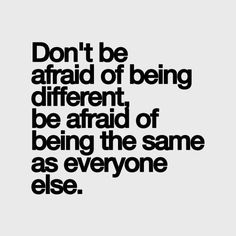Coaching the Coach – A real experience
* This is a real experience*
As part of my personal development, I have hired Dr David T. Binnion from Indigo Consulting Group Co to coach me for a year.
In our first session, I told him that I wanted to improve my coaching performance.
Even though I have not received any negative feedback from my clients, I know that I can improve my performance because I have noticed that some of my clients don’t change as much as had I expected they could.
As we meet for my second coaching session, Dr Binion says:
“What do you want to discuss today?”
“I want to talk about a specific case,” I tell him.
“Last year I coached Khun Dow, the chief operating officer for a company and a candidate for CEO according to the company’s succession plan.
“I interviewed six people who work with her and found that she needed to work on her leadership style. She was too soft, too kreng jai, she did not comment in meetings when she was supposed to.
“After six months of coaching, I didn’t see any progress, so I decided to stop.”
“Why?” David asked.
“She wasn’t ready to change. She didn’t do any of the assignments.”
“What did you do when you learned that she didn’t do the first assignment?”
“I asked her for the reason.”
“What did she tell you?”
“She said she didn’t have time.”
“What did you do?”
“I told her that at her level, she’s supposed to be able to manage her time properly. I told her that I was disappointed. I told her that she was irresponsible.”
“How did she react?”
“She didn’t show any reaction and kept her mouth shut. Lots of silence. I noticed that I talked more and more in the following coaching sessions.”
“Khun Kriengsak, what do you think is the real reason that she couldn’t change?”
“She wasn’t ready to change.”
“Let me ask you again, why didn’t she change?”
“She didn’t want to change.”
“Why didn’t she want to change?”
“I don’t know.”
“Khun Kriengsak, remember what we discussed in our first session. We are responsible for problems in our own lives. We brought these problems into our lives. In your case, you were supposed to coach Khun Dow on how to change.
“If she didn’t change, who’s responsible?”
“I guess I was responsible for her inability to change.”
“That’s good. Once you accept the fact that you were part of the problem, then you will be able to resolve it.
“So, Khun Kriengsak, what would you do differently?”
“If she didn’t have time to do her assignment, I should not criticise her immediately.
I judged her and put her on the defensive.
“I should be patient and use questions to facilitate more discussion.”
David acknowledged by nodding his head. “That’s good.”
“David, what do you do when you ask one of your coaching clients something and she doesn’t respond?”
“I wait,” he tells me.
“Sometimes people need more time to respond. I pretend to note something on my notepad. If you wait, eventually people will talk. Sometimes I rephrase my question. If people don’t respond to a question, they may not have understood it, so I try to ask it in a different way.”
My personal conclusions:
– I have to accept that Khun Dow didn’t change because the way I coached her did not help her.
Hence, I have to change my approach.
– I have to practise being non-judgemental with her. My role is to help her, not to judge or criticise her.
– I should not jump to conclusions. I should ask and probe in order to better understand her situation.
– When I ask questions, I should be patient and wait for her to reply.
If she’s quiet, I should pretend to note something to buy time and wait for her to collect her thoughts.
– Sometimes, I may need to rephrase my question in order to help my client understand.
– I should not offer a solution unless I really understand her situation.
Cristina Madeira, Certified Executive and Team Coach by ICF


